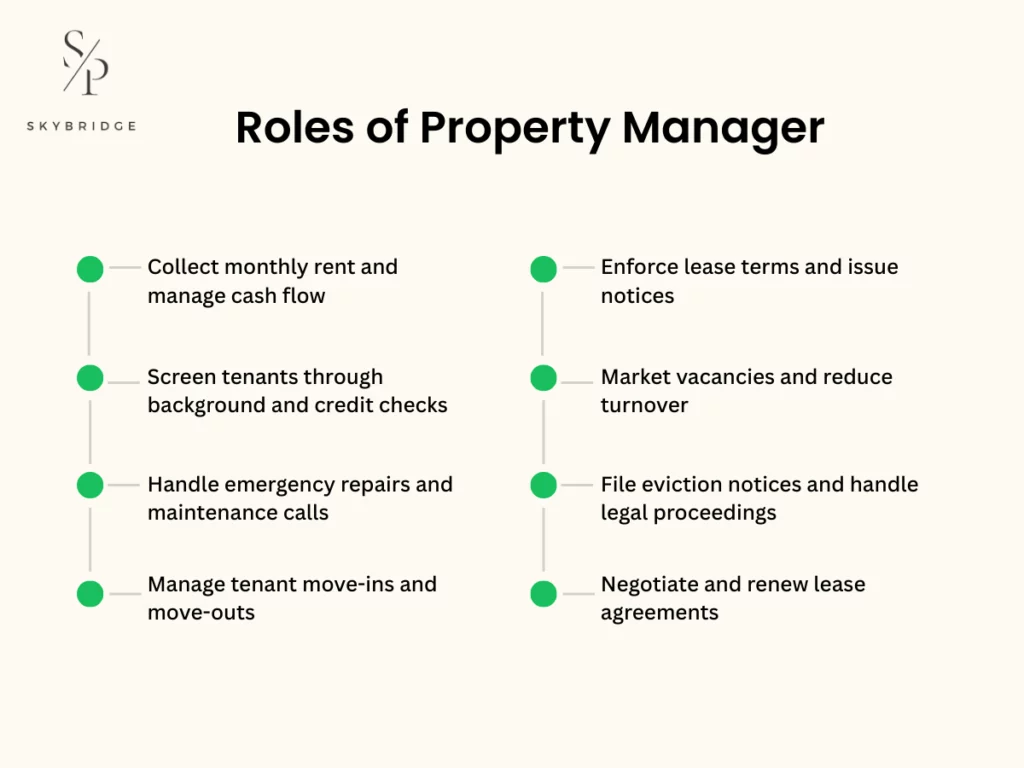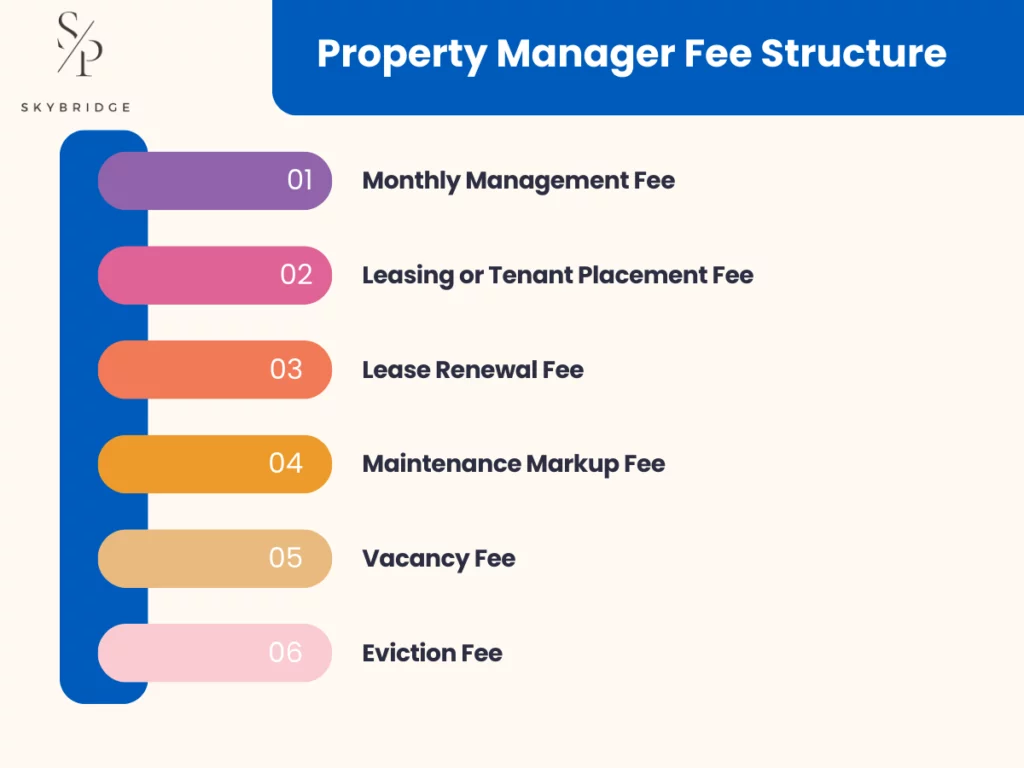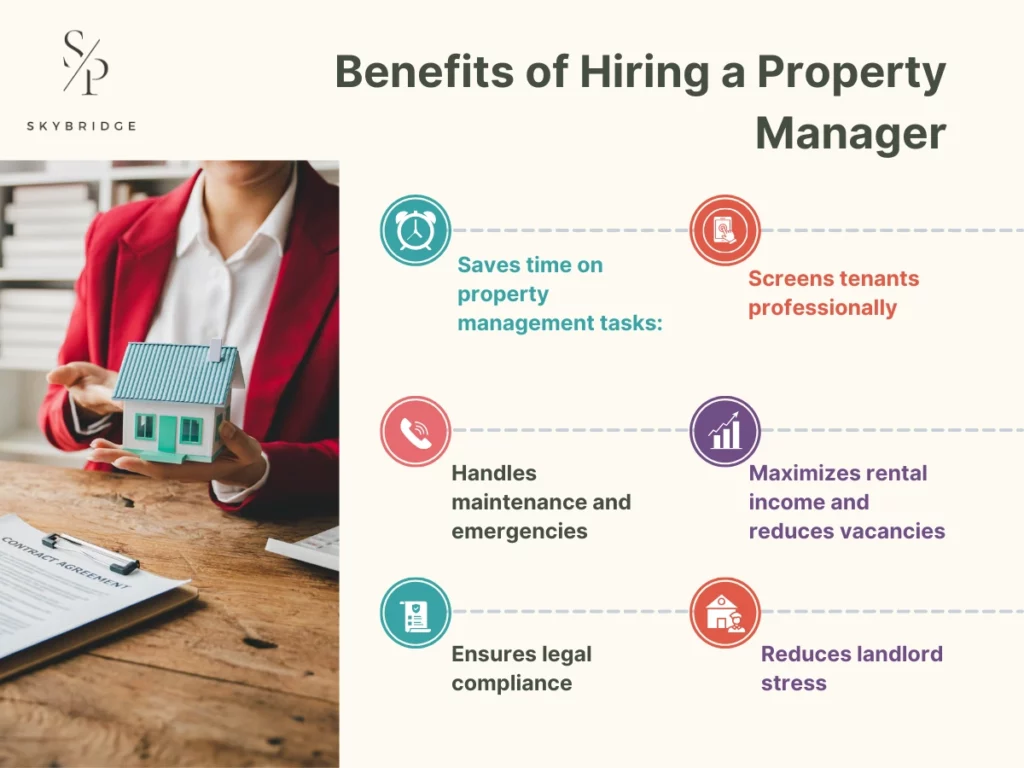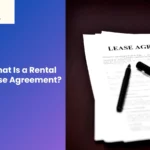A property manager is a licensed professional or property management firm hired by a real estate owner to oversee the daily operations of residential, commercial, or industrial properties. Acting as the liaison between landlord and tenant, the property manager manages tenant screening, rent collection, maintenance coordination, lease enforcement, and legal compliance to protect asset value and maintain profitability. The role also includes monitoring occupancy levels, supervising vendors, preparing financial reports, managing lease renewals, and ensuring regulatory compliance across rental properties.
Property management responsibilities include implementing structured rent systems, conducting background and credit checks, responding to emergency maintenance requests, coordinating move-ins and move-outs, processing evictions, marketing vacancies, and negotiating contracts. Management fees typically range from 5% to 25% of monthly rent, with additional leasing or maintenance charges depending on the scope of services. Becoming a property manager requires a real estate license, relevant coursework, hands-on experience, and knowledge of landlord-tenant laws such as the Fair Housing Act. As a career, property management offers advancement from entry-level roles to senior leadership positions while providing landlords with operational efficiency and associated cost considerations.
What Is a Property Manager?
A property manager is a licensed professional or a property management firm hired by a real estate owner to oversee the daily operations of their residential, commercial, or industrial properties. They act as a liaison between landlords and tenants, responsible for tenant screening, rent collection, maintenance coordination, and legal compliance to maximize property value and profitability.
Beyond routine oversight, the property manager functions as the operational authority for the real estate asset, enforcing lease agreements, supervising vendor contracts, monitoring occupancy levels, documenting financial performance, and reporting income and expenses to the property owner. This structured oversight allows the landlord to delegate operational responsibility while maintaining visibility into asset performance and regulatory compliance.
What Does a Property Manager Do?
The property manager’s responsibilities include rent collection, tenant screening, maintenance coordination, lease enforcement, regulatory compliance, and tenant communication. A property manager ensures that rental properties remain occupied, compliant with local regulations, and financially stable while protecting the landlord’s asset. These duties of a property manager create structured oversight across residential and commercial properties.

The list of core property manager responsibilities includes:
- Collect monthly rent and manage cash flow
Property managers establish a structured rent collection system using digital tools, automatic withdrawals, and secure payment platforms to reduce late fees and accelerate cash flow. They process payments, monitor due dates, and manage the property’s operating budget to ensure consistent and predictable income for the property owner. By preparing regular, accurate financial reports detailing rent received, maintenance expenses, and operating costs, property managers provide owners with transparent oversight of asset performance.
- Screen tenants through background and credit checks
To reduce the risk of late payments, eviction, or property damage, the property manager conducts a structured tenant screening process that verifies employment and income, reviews rental history, performs background checks, and evaluates credit reports. This qualification process helps identify reliable tenants and supports stable occupancy across rental properties. A property management company may require proof of income, landlord references, and a minimum credit score of 600-650 to ensure consistent lease compliance and reduce financial risk.
- Handle emergency repairs and maintenance calls
As the primary point of contact, the property manager oversees maintenance coordination by receiving repair requests, inspecting reported issues, and hiring qualified vendors to complete the necessary work. In emergency situations such as plumbing leaks or electrical hazards, the property manager responds promptly to protect tenant safety and preserve the real estate asset. This structured maintenance oversight reduces long-term repair costs and maintains property condition.
- Manage tenant move-ins and move-outs
The property manager coordinates tenant move-ins by preparing lease documentation, collecting the security deposit, and conducting a detailed property inspection to document the condition before occupancy. During move-outs, the property manager conducts a final inspection, assesses repair needs, and processes the deposit in accordance with lease terms and local regulations. This organized transition process minimizes disputes, protects the landlord’s assets, and ensures regulatory compliance.
- Enforce lease terms and issue notices
When a tenant violates lease terms, such as by keeping unauthorized pets, making noise complaints, or making late payments, the property manager monitors compliance and issues formal notices as required by contract and regulation. If violations continue, the property manager documents the breach and initiates corrective action in accordance with local landlord-tenant laws. This structured enforcement process protects the landlord from financial loss and legal exposure while maintaining consistent property management standards.
- Market vacancies and reduce turnover
To prevent income disruption caused by vacant units, property managers implement targeted marketing strategies that advertise rental properties across relevant market channels, prepare detailed listing descriptions, and schedule showings for prospective tenants. By analyzing local market conditions and setting competitive rent rates, the property manager reduces vacancy duration and stabilizes occupancy levels across the portfolio. This proactive approach maintains revenue consistency and strengthens long-term tenant retention.
- File eviction notices and handle legal proceedings
When a tenant fails to comply with lease obligations, the property manager initiates the eviction process in accordance with local legal requirements. The property manager prepares eviction notices, files necessary court documentation, and coordinates with legal authorities or an attorney to ensure procedural accuracy. By maintaining detailed records and following regulatory standards, the property manager protects the property owner during legal proceedings and reduces compliance risk.
- Negotiate and renew lease agreements
As lease expiration dates approach, property managers analyze current market conditions and negotiate lease terms with new and existing tenants, considering rent rates, contract duration, and renewal conditions. Lease renewals reduce turnover costs and preserve occupancy stability, while structured negotiation aligns tenant expectations with the landlord’s financial objectives. Through consistent tenant communication and contract management, the property manager supports long-term asset performance and revenue continuity.
Click the boxes to check off tasks completed by a property manager. You will see a “Congratulations” message when all tasks are completed.
Congratulations! All tasks are completed.
How Much Do Property Managers Charge?
Property managers charge between 5% and 25% of the monthly rent for residential properties, depending on the property type, location, and services. Multi-family properties often incur lower fees of 5% to 10% because operations scale across multiple units, while single-family homes and luxury properties may range from 10% to 25% due to individualized oversight and higher service expectations.
Vacation rentals may incur higher management fees of 25% to 50% because of rapid tenant turnover, short-term bookings, coordinating cleaning, and frequent maintenance, which increase operational demands. Some property managers also charge a monthly flat fee of $100 to $300 per unit, particularly in stable rental markets with predictable service requirements. Overall, property manager fees vary based on property type, location, service complexity, and the rental property’s specific operational needs.

Common Property Manager Fee Structures
- Monthly Management Fee
Property managers charge between 5% and 12% of the monthly rent for residential properties, while flat-fee arrangements range from $100 to $300 per unit per month. This fee structure covers core property manager responsibilities, including rent collection, tenant communication, maintenance coordination, lease enforcement, and financial reporting. The final rate depends on property type, number of units, location, rental income volume, property condition, and service complexity, with larger portfolios often qualifying for lower percentage rates.
- Leasing or Tenant Placement Fee
Under a leasing or tenant placement fee, the property manager charges between 50% and 100% of one month’s rent, or a flat rate of $500 to $1,500 per placement, depending on the market. In return, the property owner receives property management services that include marketing vacant units, advertising listings, conducting tenant screening, preparing lease agreements, and coordinating move-in documentation until a qualified tenant signs the lease. The total cost varies based on local demand, advertising intensity, property type, screening depth, and whether the leasing service is bundled with ongoing property management services.
- Lease Renewal Fee
Most property managers charge $200 to $500 per renewal, or 25% to 50% of one month’s rent, as a lease renewal fee. This fee covers reviewing current market rent rates, negotiating updated lease terms, preparing revised contracts, and securing tenant signatures to extend occupancy. The renewal cost depends on the complexity of negotiations, rent adjustments, tenant retention strategy, and the administrative workload required to update documentation and maintain regulatory compliance.
- Maintenance Markup Fee
Typical maintenance markups range from 10% to 20% above the vendor’s invoice amount. Property managers generally charge this fee when they coordinate repairs and supervise vendors, often adding a markup to contractor invoices to cover scheduling, oversight, and quality control. The markup varies based on repair complexity, emergency response requirements, vendor relationships, service contracts, and the level of supervision required to maintain property standards.
- Vacancy Fee
Some property managers charge 50% of the standard management fee while the unit remains vacant, while others apply a flat rate between $50 and $150 per month per vacant unit. The vacancy fee compensates the property manager for managing vacant units, conducting inspections, maintaining utilities, and continuing marketing efforts during periods without occupancy. Cost depends on local market conditions, vacancy duration, property size, maintenance needs, and the intensity of marketing efforts required to secure a new tenant.
- Eviction Fee
Property managers generally charge between $200 and $500 for eviction processing, excluding court filing fees and attorney costs, which can add $500 to $1,500 or more, depending on the jurisdiction. The eviction fee covers preparing legal notices, filing court documents, coordinating with attorneys, and managing communication throughout the eviction process to ensure compliance with landlord-tenant regulations. The total expense varies based on state regulations, court procedures, legal representation requirements, and case complexity.
How to Become a Property Manager?
To become a property manager, you must obtain a real estate license, complete a property management program, gain rental property management experience, learn fair housing laws, and apply for a property manager position. Following this structured path ensures that you meet regulatory requirements, develop operational expertise, and qualify for professional property management roles within a licensed management company or real estate firm.
5 crucial steps to becoming a property manager are:
- Obtain a real estate license in your state
In most states, a property manager must obtain a real estate license to legally manage rental properties and collect rent on a landlord’s behalf. The licensing process usually requires completing state-approved pre-licensing education, passing a state licensing exam, submitting a background check, and applying through the state’s real estate regulatory agency. For example, in California, candidates must complete the required coursework, pass the California real estate salesperson exam before engaging in licensed property management activities, and even gain a broker’s license for certain property management activities.
- Complete property management certification programs
Professional certifications such as the Certified Property Manager (CPM) and Accredited Residential Manager (ARM) offered by the Institute of Real Estate Management strengthen credibility and support career advancement in property management. Residential property managers may also pursue the Residential Management Professional (RMP) designation through the National Association of Residential Property Managers. These certifications require structured coursework, verified management experience, and adherence to ethical standards, demonstrating professional competence to property owners and management firms.
- Gain hands-on experience managing rental properties
Gaining hands-on experience managing rental properties develops the practical skills, such as strong communication and time management, required for effective property management. Many property managers begin by working under an experienced property manager or within a property management company to learn tenant screening, maintenance coordination, lease enforcement, and financial reporting. Managing smaller residential properties or assisting with multi-family units builds experience in reducing vacancies, supervising vendors, and communicating with tenants. Entry-level roles may require 6 to 12 months of on-site experience, while senior credentials such as CPM often require at least three years of documented experience.
- Learn local landlord-tenant and fair housing laws
A property manager must understand federal and state landlord-tenant laws to ensure legal compliance and reduce liability. For example, property managers must comply with the Fair Housing Act (42 U.S.C. § 3601–3619), which prohibits discrimination based on race, religion, sex, disability, or family status. In California, managers must comply with California Civil Code §1950.5 for security deposit limits and with Code of Civil Procedure §1161 for unlawful detainer and eviction notice requirements. Failure to comply with these statutes can result in fines, civil penalties, tenant lawsuits, and loss of a real estate license.
- Apply for property manager positions
Once you have obtained a real estate license, completed certification programs, and gained practical experience, you can begin applying for property manager positions. Prepare a professional resume that highlights licensing status, certifications such as CPM or RMP, and experience in tenant screening, maintenance coordination, and financial reporting. Search for opportunities with both small property management firms and large real estate companies, and network with brokers and property owners to expand employment prospects.
Property Manager As a Career
Property management is a structured and growth-oriented career that involves overseeing residential, commercial, or industrial real estate. Career progression in the property management field typically moves from entry-level roles, such as Leasing Consultant or Assistant Property Manager, to mid-level Property Manager positions and eventually to senior leadership roles, such as Regional Property Manager, Director of Property Management, Asset Manager, or Portfolio Manager.
Success in property management requires strong communication, organization, multitasking, financial oversight, and customer service skills. Senior roles offer higher earning potential, with positions such as Senior Property Manager ranging from $56,131 to $125,672 annually and Director of Property Management roles ranging from $54,764 to $155,399, depending on portfolio size and market location.
What Skills Do Property Managers Need?
The skills property managers need include communication and interpersonal skills, financial management, a problem-solving attitude, customer service, and knowledge of legal compliance. These competencies allow a property manager to manage tenant relations, oversee rent collection and budgeting, coordinate maintenance operations, enforce lease agreements, and maintain regulatory compliance across residential and commercial rental properties.
5 key skills property managers need are:
- Communication and interpersonal skills: Effective communication enables clear coordination with tenants, landlords, vendors, and onsite staff, ensuring accurate lease documentation, timely maintenance updates, and professional tenant interactions.
- Financial management and budgeting: Managing rental income involves creating operating budgets, tracking expenses, overseeing rent collection, and preparing financial reports to help property owners evaluate asset performance and ROI.
- Problem-solving and conflict resolution: Daily operations often involve tenant disputes, maintenance emergencies, and lease violations, which require structured decision-making to protect occupancy and property value.
- Customer service: Serving as the primary contact for tenants requires responding promptly to inquiries, complaints, and repair requests to maintain tenant satisfaction and reduce turnover.
- Legal compliance knowledge: Understanding landlord-tenant laws, fair housing regulations, eviction procedures, and local housing codes ensures that property management activities remain compliant and legally defensible.
What Are the Educational Requirements for Property Managers?
Educational requirements for property managers include a high school diploma or GED, a bachelor’s degree in business or a related field, state-approved property management courses, and a real estate license. These qualifications help ensure that a property manager understands financial management, lease agreements, tenant relations, and regulatory compliance before overseeing rental properties.
Major education requirements to become a property manager:
- High school diploma or GED: A high school diploma or GED is typically the minimum requirement to enter property management, and some entry-level roles, such as leasing assistant or administrative support, may accept this credential alone.
- Bachelor’s degree in business or real estate: Some employers prefer candidates with a bachelor’s degree in business administration, real estate, finance, or management, particularly for senior property manager or portfolio management positions.
- State-approved property management courses: Many states require completion of approved real estate or property management coursework before issuing a license, which typically covers contracts, property law, and financial practices.
- Real estate license: In many states, property managers must obtain a real estate license by completing required coursework, passing a state exam, and meeting continuing education standards to legally manage rental properties on behalf of a property owner.
What Certifications Are Required to Become a Property Manager?
Certification required to become a property manager is Certified Property Manager (CPM), Accredited Residential Manager (ARM), Residential Management Professional (RMP), and National Apartment Leasing Professional (NALP). Each of these certifications strengthens professional credibility and improves career prospects in property management by demonstrating verified expertise in financial oversight, asset performance, leasing, and regulatory compliance.
4 major certifications required to become a property manager are:
- Certified Property Manager (CPM): The CPM designation, awarded by the Institute of Real Estate Management, is widely recognized as one of the most respected credentials in the property management industry and emphasizes asset management, financial performance, and leadership.
- Accredited Residential Manager (ARM): Also offered by the Institute of Real Estate Management, the ARM certification focuses on residential property management and is well-suited for professionals managing multi-family or residential rental properties.
- Residential Management Professional (RMP): The RMP designation is provided by the National Association of Residential Property Managers and targets residential property managers seeking advanced skills in leasing standards, maintenance systems, and operational best practices.
- National Apartment Leasing Professional (NALP): The NALP certification, offered by the National Apartment Association, focuses on apartment leasing, marketing strategy, and tenant retention.
How Long Does it Take to Become a Property Manager?
The time required to become a property manager typically ranges from 6 months to 4 years, depending on education, licensing requirements, certifications, and prior work experience. Entry-level roles may be accessible within six to twelve months if a candidate completes required real estate coursework and gains on-site experience. Obtaining a real estate license often takes several months, while earning advanced certifications, such as CPM, may require at least three years of documented management experience. The overall timeline varies by state regulations, individual qualifications, and whether a bachelor’s degree is pursued.
Pros and Cons of Hiring a Property Manager for Rental Property
Hiring a property manager for rental property management offers benefits, including saving time, professional tenant screening, efficient rent collection, and structured maintenance management, allowing landlords to delegate day-to-day operations while maintaining consistent oversight of their real estate assets. However, it also has some drawbacks, such as management fees that reduce rental profits, limited direct control over tenant decisions, potential concerns about service quality, and the possibility of less personal landlord-tenant relationships.
What Are the Benefits of Hiring a Property Manager?
The benefits of hiring a property manager are saving time on property management tasks, professional tenant screening, handling maintenance and emergencies, maximizing rental income, reducing vacancies, and ensuring legal compliance. These advantages allow landlords to delegate daily operations, protect asset performance, maintain stable occupancy, and reduce the financial and legal risks of managing rental properties independently.

6 major benefits of hiring a property manager are:
- Saves time on property management tasks: Delegating rent collection, maintenance coordination, tenant communication, and financial reporting allows landlords to focus on other professional or personal priorities.
- Screens tenants professionally: Structured tenant screening, including background checks, credit evaluations, and rental history verification, reduces eviction risk and supports stable occupancy.
- Handles maintenance and emergencies: Coordinating repairs, supervising vendors, and responding to emergency maintenance issues protects tenant safety and preserves property condition.
- Maximizes rental income and reduces vacancies: Market analysis, competitive rent pricing, and targeted marketing reduce vacancy periods and maintain consistent cash flow.
- Ensures legal compliance: Knowledge of landlord-tenant laws, eviction procedures, state-specific laws, and housing regulations protects landlords from fines, penalties, and legal disputes.
- Reduces landlord stress: Managing tenant disputes, lease enforcement, and operational challenges alleviates daily management pressure and supports a more hands-off investment approach.
What Are the Cons of Hiring a Property Manager?
Cons of hiring a property manager are management fees that reduce profits, less control over the property, risk of poor management, and impersonal tenant relationships. These drawbacks may affect net rental income, limit direct landlord involvement in decision-making, and create service issues if the property management company fails to meet performance expectations.
4 major cons of hiring a property manager are:
- Management fees reduce profits: Property management fees typically range from 8% to 12% of monthly rent, thereby reducing net rental income. The exact percentage may vary depending on property size, service scope, market location, and operational demands.
- Less control over property: Delegating management authority can limit the landlord’s direct involvement in tenant approvals, lease terms, pricing decisions, and day-to-day operational oversight.
- Risk of Poor Management: Ineffective supervision, delayed maintenance, weak tenant communication, or a lack of regulatory knowledge can negatively impact occupancy rates and overall property performance if the management company lacks experience.
- Impersonal Tenant Relationships: The involvement of a property manager may reduce direct landlord-tenant interaction, which can hinder relationship-building and communication, particularly in smaller residential rental properties.
Estimated Monthly Cost:
Please fill out the form to get an estimate.
Why Would a Rental Property Need a Property Manager?
A rental property needs a property manager if the owner lives far from the property location, manages multiple rental properties, has limited time for daily operations, faces legal compliance concerns, or requires professional tenant screening. These situations create operational complexity that can affect rent collection, maintenance coordination, lease enforcement, and regulatory compliance.
5 major reasons why rental properties need a property manager are:
- Distance from property location: Owners who live far from their rental property rely on local management to handle inspections, tenant issues, maintenance coordination, and emergency response.
- Multiple properties to oversee: Managing several rental properties requires coordinated rent collection, vendor supervision, and lease administration across units, which a property manager can centralize and streamline.
- Limited time for management: Landlords with demanding careers or personal commitments may lack the time required for daily tenant communication, rent tracking, and maintenance scheduling.
- Legal compliance concerns: Property managers stay informed about landlord-tenant laws, fair housing regulations, and eviction procedures to ensure the rental property remains compliant with local housing standards.
- Professional tenant screening required: Structured background checks, credit evaluations, and rental history verification reduce financial risk and improve tenant reliability.
Who Should Hire a Property Manager?
Out-of-state owners, busy professionals, portfolio investors, luxury property owners, and first-time landlords should hire a property manager when the demands of managing rental properties exceed their time, resources, or experience. Property management services provide local oversight, structured tenant screening, maintenance coordination, financial reporting, and regulatory compliance, ensuring consistent property performance and reduced operational risk.
Property owners who should hire a property manager are:
- Out-of-State Owners: Property managers provide local oversight for owners who live in a different state or region by handling inspections, coordinating maintenance, and communicating with tenants on-site.
- Busy Professionals: Individuals with demanding careers benefit from delegating rent collection, lease enforcement, and maintenance supervision to maintain property performance without daily involvement.
- Portfolio Investors: Investors with multiple rental units rely on centralized management to streamline operations, reduce vacancies, and maintain consistent cash flow across their portfolio.
- Luxury Property Owners: High-end properties often require specialized tenant services, vendor coordination, and maintenance standards that benefit from professional oversight.
- First-Time Landlords: New property owners may lack experience with lease agreements, tenant screening, and regulatory compliance, making professional property management a structured and reliable support system.
Get a Quote from Skybridge Property Group
Skybridge Property Group is a trusted provider managing properties in key California markets, including:
Our Key Service Areas:
Ready to get started? Fill out the form below for a quick quote and consultation, or contact us for more information.
How to Choose a Property Manager for Your Rental Property?
Choosing a property manager requires evaluating experience, licensing, certifications, communication standards, and fee transparency. A qualified property manager should have documented experience managing rental properties similar to yours, hold an active real estate license where required, and demonstrate knowledge of landlord-tenant regulation and fair housing compliance. Reviewing client testimonials, occupancy performance, and maintenance response systems helps verify operational reliability.Landlords should also assess responsiveness, reporting structure, and fee breakdown before signing a management agreement. Management fees, leasing fees, and maintenance markups should align with the services provided and your budget expectations.Comparing proposals from multiple firms, including trusted property management company options, allows property owners to evaluate the scope of services, communication style, and long-term value before making a decision.







